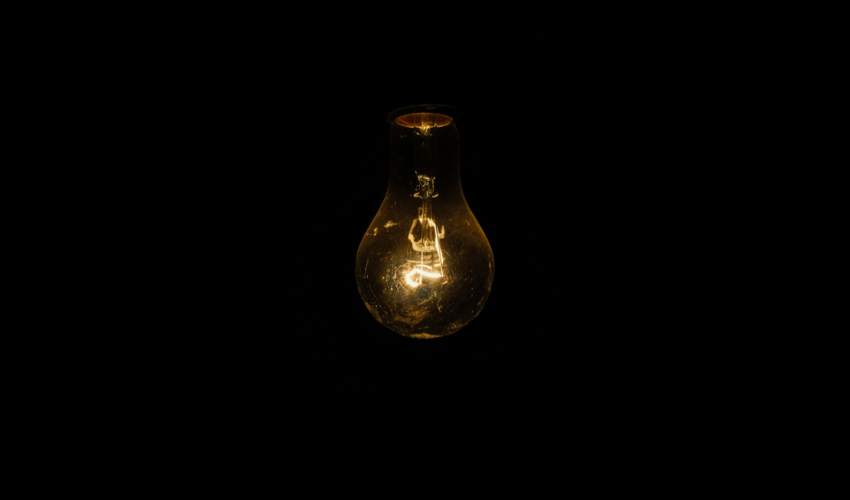Over the last few years, many Texans have begun to question the reliability of the power grid. In 2022 alone, 14 percent of all power outages occurred in the Lone Star State, the second highest in the nation.
With odds like this, it’s critical to ensure your home remains comfortable when unexpected power outages strike. For many homeowners, this means installing a generator. Though this topic typically falls within an electrician’s wheelhouse, customers often give us a call when it comes to operating larger systems like your water heater, furnace, and air conditioner on a generator.
Below, we’ll discuss the compatibility of these systems with generators, some factors to consider when selecting a generator, and what you’ll need to know before installation.
What Type of Generator is Right for You?
Generally, there are two types of generators homeowners may consider for their power needs: whole house and portable. The right choice depends on what appliances you want to support during an outage and the wattage needed to support them.
Portable generators are traditionally smaller and easier to move around. The tradeoff for this versatility is that they provide much less power, only capable of powering some essentials. Additionally portable generators must also be manually set up and operated whenever the power goes out, requiring frequent refueling to maintain usage.
Whole house generators, also known as standby generators, are permanently installed outside your home and connected directly to the electrical system by professional technicians. Whole house generators, when connected correctly, automatically turn on whenever the power goes out. These generators come with greater supply wattage capabilities and can provide continuous power to larger sized appliances.
Prioritizing During Power Outages
When thinking about connecting a generator to your HVAC system and water heater, you’re likely not just asking if it’s possible, but if it’s practical. In almost all cases, so long as your generator’s wattage is large enough, your systems can operate on a generator. But this often comes at an extremely high cost–and because of this, there are times where alternatives may make sense. In times of outages, prioritizing your power needs is key.
- Cooling: While it’s great to use a generator to power your refrigerator and freezers to keep food from spoiling, running your central air conditioner alongside these appliances on a whole house generator is much more of a luxury. Often, it makes more sense to have a window unit or a portable A/C unit that a smaller gasoline generator can power until electricity is restored. Either way, ensuring your house has a tight building envelope ahead of time will help you maintain the temperature inside your home for longer.
- Heating: Having a backup generator for your furnace can be a huge benefit when power goes out during severe cold weather. The heater can keep your pipes from freezing and bursting, and you won’t need to suffer through dangerously cold temperatures. However, this decision mainly comes down to what your furnace runs on.
- If you have a gas furnace, you’ll need a whole house generator to provide enough power to the furnace. A portable or gasoline powered generator won’t provide the type of clean power modern furnaces require.
- If you don’t have natural gas in your home, it will take even more power to run your heat. Rather than attempting to power an electric furnace with a whole house generator, a better option may be a few space heaters powered by a portable gasoline generator.
- Water heater: Gas-powered water heaters can usually continue operating while the power is out, unless they are tankless or hybrid type of water heaters. Electric water heaters however, require electricity to remain operational. If you have a traditional water heater, you’ll likely have access to hot water even without a generator for some time. The amount of time and water primarily depends on whether your tank is properly insulated and how recently the water was heated. Aside from that, you could use a small portable generator to power your microwave, an electric tea kettle, or even a portable cooktop and heat water or just go without while the power is out.
Potential Damage Risks
Beyond feasibility, there are a couple of potential risks to consider when running HVAC systems and water heaters on generators as well. The most common risk involves overloading the generator by running several high-wattage appliances at the same time, leading to unit damage or failure. Consulting with an electrician about your needs should help you avoid this issue.
Another set of potential problems arise when your generator is incorrectly installed or connected to your home’s electrical system. Faulty installation can pose a major fire risk throughout your home. You may also risk damaging any appliances connected to the generator. For this reason, it’s best to let the professionals handle whole house generator installation.
In Closing
Generators can provide much-needed convenience and peace of mind during power outages. However, it’s important to understand the use cases and potential damage risks before taking the plunge. An electrician should be your first point of contact when considering a generator. They’ll be able to assess your power needs and tailor a solution right for your family. Need a plumber or HVAC technician to help with the set up? Give North East Air Conditioning, Heating and Plumbing a call today!
Header photo by Rodion Kutsaiev on Unsplash


